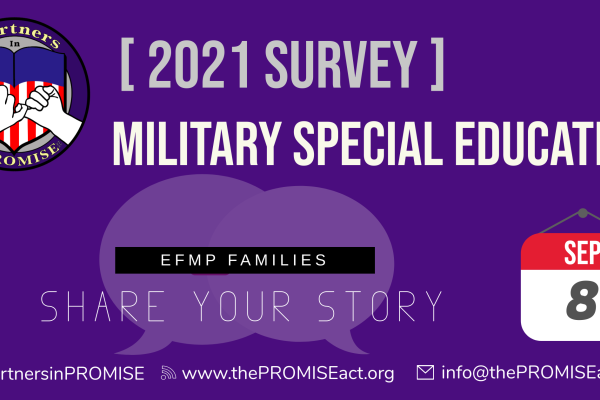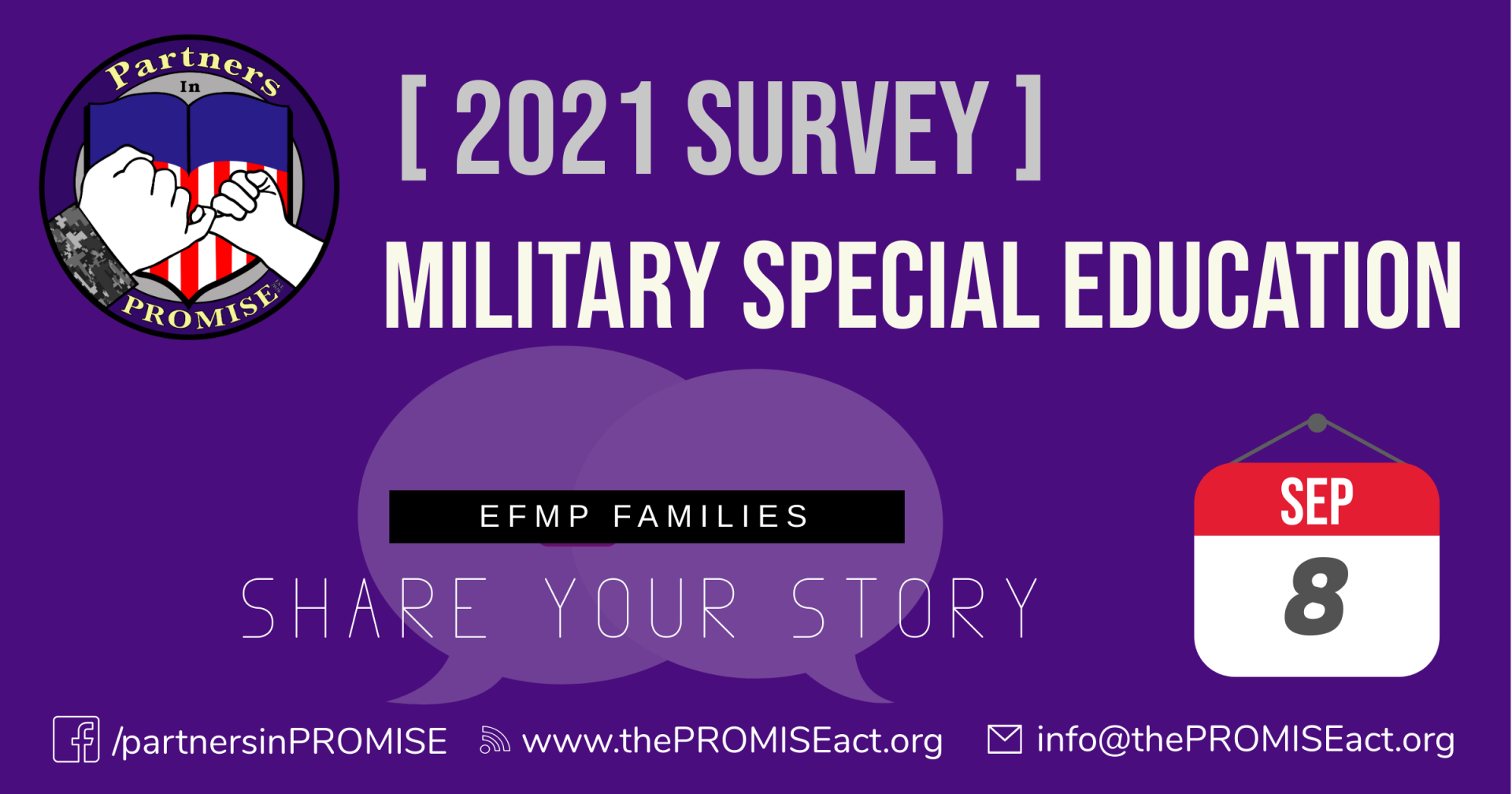
WHY Another Survey? Partners in PROMISE’s 2021 Military Special Education Survey
| Resources, Survey Data
“There may be a large and rising number of families that are invisible because they are neither tabulated nor targeted in family readiness efforts.”[i]
Partners in PROMISE’s 2021 Military Special Education Survey Launches September 8th
For over a decade, families have been frustrated over the lack of oversight on special education for their children.[ii] Although the Exceptional Family Member Program (EFMP) was introduced by the Army in 1979[iii], military families with special needs have been underrepresented in military surveying. The last in depth survey to examine EFMP effectiveness was conducted by GAO in 2012. Based on the information collected we know that:
- The Exceptional Family Member Program is not standardized by location or service branch.
- There is little, to no program oversight or accountability by DoD’s Office of Special Needs.
- There is little data collected on the program.
These facts have not changed over the past eight years according to the evidence presented in a 2018 GAO study[iv]. Although the Department of Education (DoE) serves as the regulatory agency for all public-school systems, they have no effective way to enforce their legal decisions, as most schools are responsible for defining, rating and reviewing their own performance metrics and are not required to report military-specific education outcomes to the DoE.
Research Question
Given this lack of information on military children in special education and the desire to improve the Exceptional Family Member Program Partners in PROMISE’s primary focus is to answer the following research question:
To what degree are military families with children who have special needs facing difficulties accessing a “free and appropriate public education” due to the military lifestyle?
- How many of these families are enrolled in the EFM program?
- To what degree does the EFMP alleviate the difficulties military families face accessing a “free and appropriate public education”?
- How does the EFMP support military families’ ability to receive a “free and appropriate public education”?
If you are interested in participating in our annual survey be sure to sign up for our newsletter to be included in our September 8th distribution.

[i] Hawkins SA, Condon A, Hawkins JN, Liu K, Melendrez Ramirez Y, Nihill MM, Tolins J. 2018. “What We Know About Military Family Readiness: Evidence from 2007-2017.” Research Facilitation Laboratory. Monterey, CA: Office of the Deputy Under Secretary of the Army; 2018. https://apps.dtic.mil/dtic/tr/fulltext/u2/1050341.pdf (March 30, 2018).
[ii] Bronfenbrenner Center for Translational Research, Cornell University and Beach Center on Disability, The University of Kansas. 2013. “Department of Defense Exceptional Family Member Program Benchmark Study.” September 2013. https://download.militaryonesource.mil/12038/MOS/ResourceGuides/EFMP-Benchmark.pdf
[iii] Congressional Research Service. 2020. “Defense Primer: Exceptional Family Member Program (EFMP).” In Focus. January 29. https://fas.org/sgp/crs/natsec/IF11049.pdf (January 29, 2020)
[iv] MILITARY PERSONNEL – DOD Should Improve Its Oversight of the Exceptional Family Member Program.” U.S. Government Accountability Office (GAO). May 2018. GAO-18-348. https://www.gao.gov/assets/700/691647.pdf





Leave a Reply